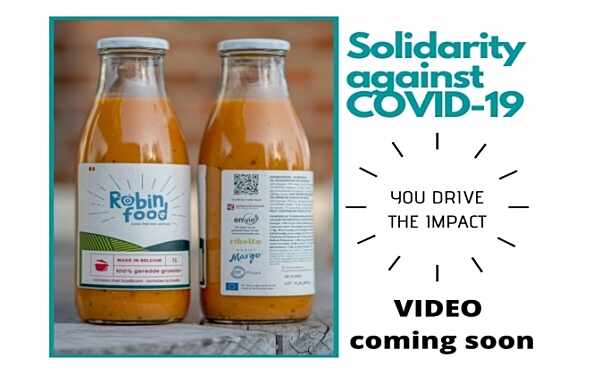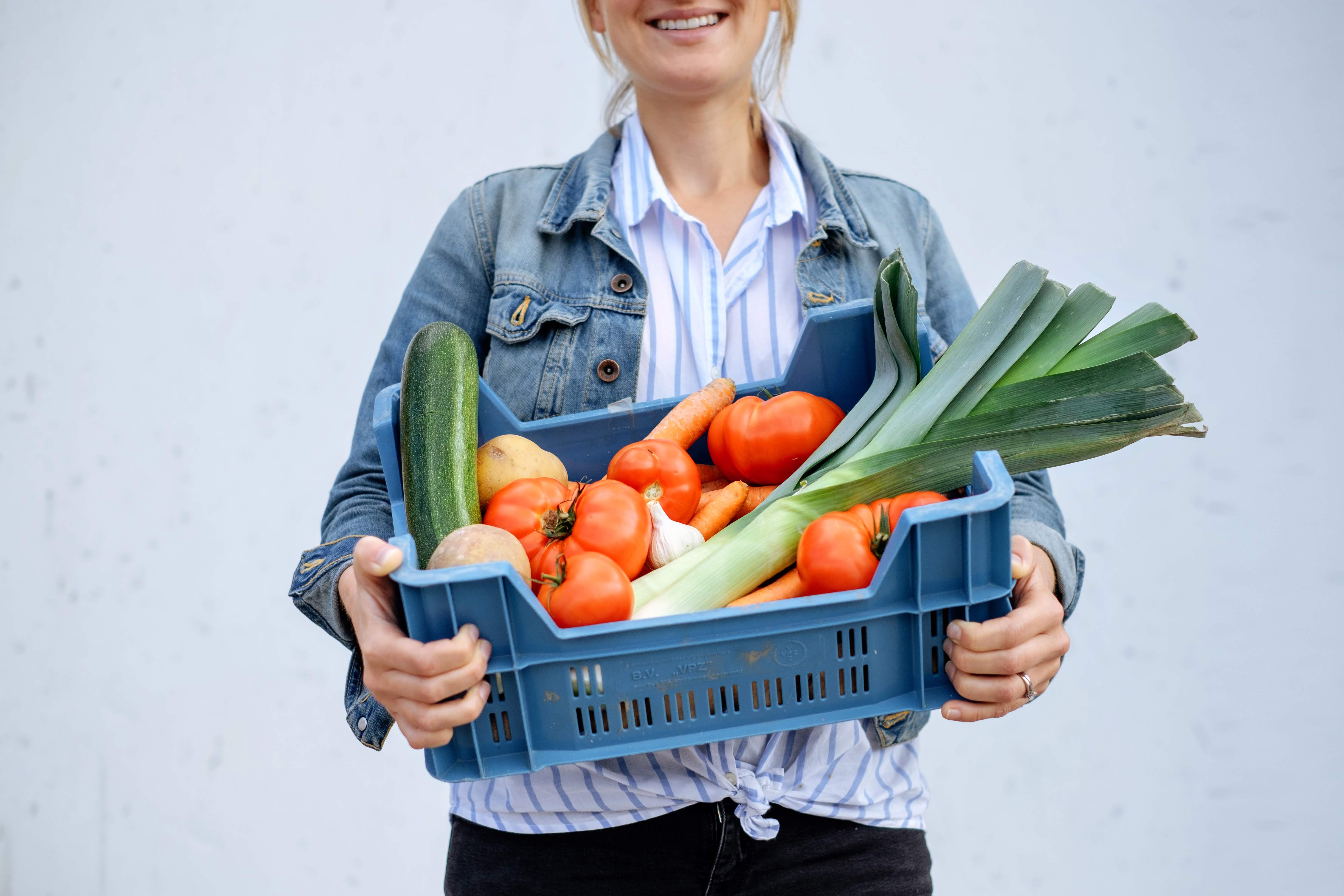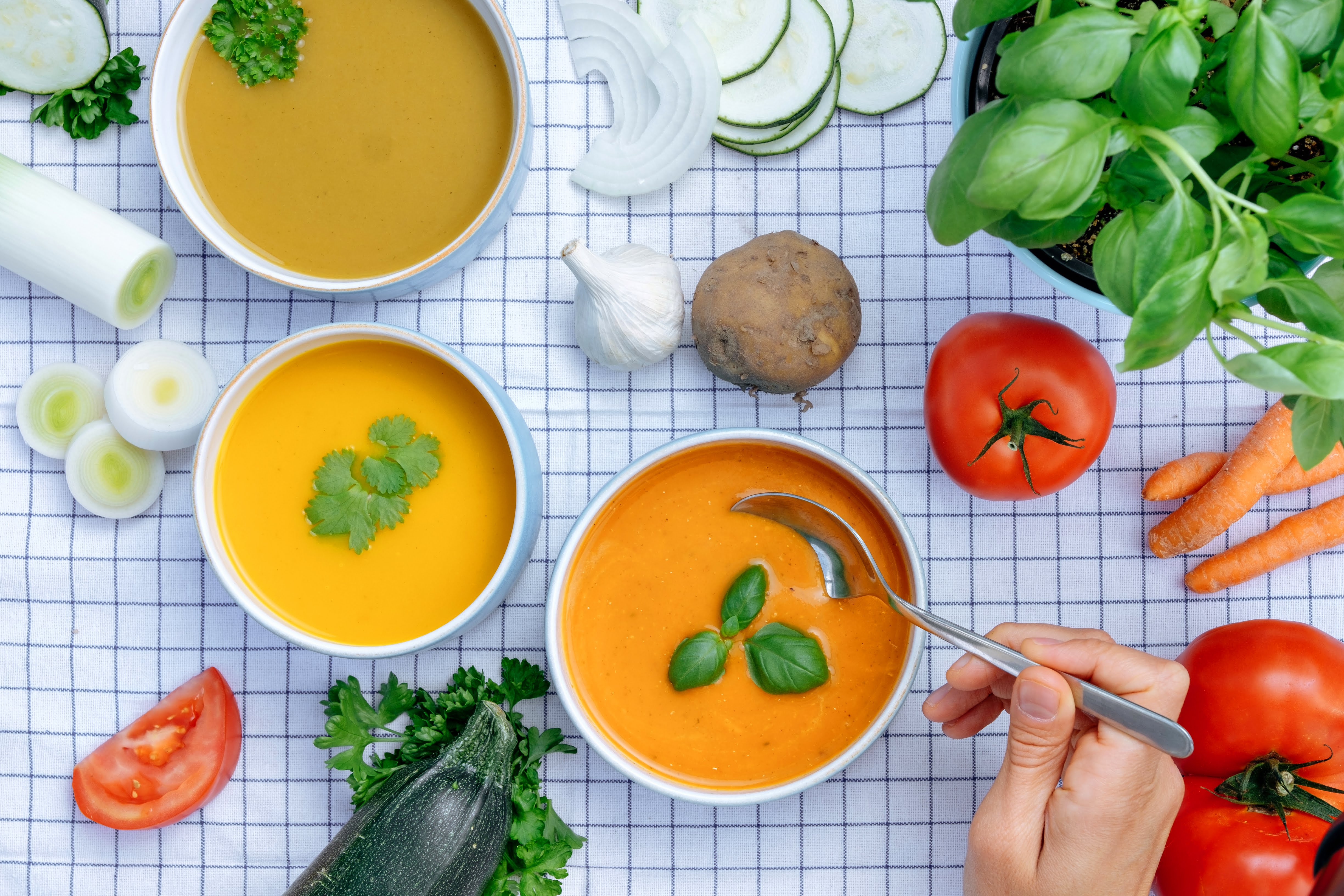
Robin Food transforms surplus vegetables into soups for social grocery stores and food aid
Today EIT Food, together with 4 partners enVie, Rikolto, RIMO and Riso launch a new soup, with a great story: Robin Food. The soup is made from fresh surplus vegetables that our farmers, members of REO Veiling, find more difficult to sell due to the corona crisis. The vegetables are made into soup at the social enterprise enVie. The soup is then distributed to vulnerable families through food banks and social grocers.
10 april 2020 - Today, 5 partners are launching new soups, with an amazing story: Robin Food. These soups are made from surplus vegetables that the REO Veiling farmers' cooperative and other regional suppliers are finding it harder to sell due to the corona crisis. These vegetables are transformed into soup at the social enterprise enVie. The soup is then redistributed to food aid actors by enVie, Samenlevingsopbouw Riso Vlaams-Brabant and Depot Margo (Samenlevingsopbouw Rimo Limburg). Rikolto(formerly Islands of Peace) were able to set up this collaboration in less than 2 weeks thanks to an investment from EIT Food.
"Due to the economic shock caused by the COVID-19 crisis, we see a growing group of people who have too few resources to feed themselves and their families," says Liesbeth Smeyers of Samenlevingsopbouw Riso Vlaams-Brabant. "As a result, food aid organizations and social grocery stores are seeing an increase in demand, while there is less surplus through supermarkets." This is also noticeable in other parts of the country.
Finding a way back from economic shock
Our farmers are also facing difficulties having to deal with large volumes of surplus vegetables as a result of the crisis. "The loss of a significant part of our customers in Belgium and abroad, as well as an increasing volume of fresh fruits and vegetables at the start of the season, translate into a surplus of certain products" , explains Dominiek Keersebilck, director commercial at REO Veiling. "We are therefore very satisfied to participate in the Robin Food project."

The closure of the restaurant sector affects not only farmers, but also food processing companies like enVie. Naomi Smith, General Manager at enVie: “Producing soup with Robin Food gives us the opportunity to restart production in times of crisis and do what we do best: create tasty products with an environmental added value and provide work for people coming out of long-term unemployment”.
Accelerating the project
The realization of the Robin Food project, in record time, was made possible thanks to the investment of EIT Food (the European Institute of Innovation and Technology in Food). "The corona crisis forced us to cancel many activities," says Martine van Veelen, Director of EIT Food CLC West. "We want to invest these freed up resources in structural initiatives which also offer a solution to respond fast to the immediate needs of the most deprived."
Rikolto proposed this project as a member of EIT Food and managed to mobilize a partnership in a short time. "We were already working behind the scenes with Samenlevingsopbouw Riso Vlaams-Brabant and fruit and vegetable wholesalers to transform their surpluses into finished products for social grocery stores," explains Jo Vandorpe de Rikolto. "With this investment, everything is accelerating."
Dépôt Margo, from Samenlevingsopbouw Rimo Limburg is also interested in the project to help struggling Limburgers to obtain healthy and affordable food. "We can't wait to offer the soup," said Karel Bollen of Margo Depot. "What makes this project so valuable is the combination of social integration, poverty reduction, access to healthy food and the positive impact on the environment by saving food surpluses."
Robin Food: a long-term structural project
In the short term, 20.000 liters of soup will be sold under the Robin Food brand. But it does not stop there. Riso Vlaams-Brabant and Rikolto wish to introduce other products offering a solution to food surpluses in the coming months, while giving people in vulnerable situations access to healthy and sustainable food.
"We will soon be able to offer Robin Food fruit juice to our social grocery store, as well as a spread for sandwiches or aperitifs through the packaging-free shop," says Xenia Langen of Samenlevingsopbouw Riso Vlaams-Brabant. "We are delighted that with this project, we will be able to launch our new Robin Food label more quickly."
The economic model of Robin Food must also be consolidated. “We would like to offer the products in the “classic” trade circuit, at a slightly higher price, and make it possible for people with less means to buy the products at a reduced price at the social grocery store,” concludes Jo Vandorpe of Rikolto.
Do you want to help us? Crowdfunding Robin Food
To be able to distribute 20.000 liters, the Robin Food partners hope to find additional funding. If you want to support the project, you can do so by buying the soup via the Robin Food crowdfunding page on the Gingo platform:
https://www.gingo.community/en/robinfood?set-country=LU

More News from EIT Food West


Meet the EIT Community New European Bauhaus in Brussels!







